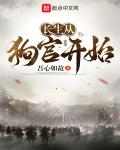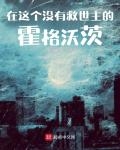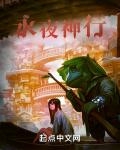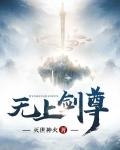Chapter 190: The cycle of history, this system must be changed!
In the history that Su Che knew, the emergence and implementation of the Single Whip Law greatly increased the court's fiscal revenue, alleviated the economic crisis , and to a certain extent also eased the contradiction between the landlord class and the peasant class.
This was considered to have extended the life of the Ming Dynasty in its later years.
Unfortunately, with the death of Zhang Juzheng due to illness in the tenth year of Wanli, the Single Whip System lost its most powerful supporter. This policy to strengthen the country and enrich the people was completely destroyed, and Zhang Juzheng was also liquidated after his death.
but.
At that time, the Ming Dynasty was gradually entering its old age, with many accumulated problems, just like a carriage that was about to collapse. Even if the coachman repaired it, its essence had not been changed. Therefore, it was very normal that Zhang Juzheng's reforms did not succeed.
But now it's different.
The present Ming Dynasty is the Ming Dynasty of its early years, the Ming Dynasty during the Hongwu period. Everything is ready to be rebuilt and the country is thriving. Although there are many problems left over from the Yuan Dynasty, they are not without solutions.
As long as the Single Whip Law is enacted as a national policy and continues to be implemented and becomes the country's inherent policy, the country's life will inevitably be extended a lot.
For this reason, Su Che would push away without hesitation anyone who stood in his way, no matter if they were royal relatives, founding heroes, or important officials of the court.
Cao Tai, Marquis of Xuanning, was exiled.
The son-in-law Ouyang Lun was exiled.
The Minister of Revenue Guo Heng was beheaded.
The reason why Guo Heng was treated differently was not because the other two were royal relatives or descendants of founding heroes, but because they were involved in other cases.
When Guo Heng was arrested for purchasing banknotes, the Jinyiwei began to investigate him thoroughly and were surprised to find that the case of this Minister of the Ministry of Revenue, Guo Heng, was not limited to purchasing banknotes.
The crime he committed, purchasing banknotes, was considered quite minor.
In the previous case of the empty seal, Guo Heng, the assistant minister of the Ministry of Revenue, who was one of the ultimate sources, was also involved and sheltered many people.
In addition, he colluded with officials from various provinces to cheat, embezzle taxes, and steal and sell official grain. The scale of the case was so huge that it was shocking!
The case shows:
Guo Heng abused his power and colluded with Li Yu, Zhao Quande, Hu Yi, Wang Daoheng and others to commit corruption, which involved three things.
1. Privately embezzling taxes from Taiping Prefecture, Zhenjiang Prefecture and other prefectures to reduce the court's tax revenue.
2. He embezzled the autumn grain from western Zhejiang. The autumn grain from western Zhejiang should have been handed over to the government at 4.5 million shi, but Guo Huan only handed over more than 2 million shi.
3. When collecting taxes, they created various pretexts and levied various taxes such as water fees, food fees, treasury fees, and fees for gods and Buddhas, and enriched themselves.
When Fang Keqin implemented the Single Whip System, the greatest resistance came not from the common people and landlords, but from his colleagues.
This case involved twelve provincial governments across the country, including the Minister of Rites Zhao Mao, the Minister of Punishments Wang Huidi, the Vice Minister of War Wang Zhi, and the Vice Minister of Works Mai Zhide.
According to the search.
Guo Huan and others embezzled a total of more than 24 million shi of spiritual rice.
In the Ming Dynasty, one dan weighed 153.5 jin, while one jin weighed 594.6 grams at that time. Therefore, one dan in the Ming Dynasty is approximately equal to 182.54 jin today.
More than 24 million stones of spiritual rice...
If converted into modern kilograms, that would be nearly 4.3 billion kilograms of spiritual rice!
This number is really terrifying.
And it is simply impossible to recover all of this magical rice.
Su Che's approach was to kill hundreds of the main culprits and recover most of the stolen money without affecting too many people.
In the history that Su Che knew, when Zhu saw this number, his eyes went red. Food, it’s all our food! Damn these corrupt officials!
Old Zhu was naturally unwilling to see such a loss in vain, so in order to recover the stolen grain, a nationwide riot was directly triggered, involving countless wealthy businessmen who had made large-scale purchases, and countless wealthy people in the private sector went bankrupt because of it.
In addition, tens of thousands of officials across the country were involved in the case, all of them were traced back to their roots and executed!
This shocking case caused a great impact.
You have to know that it was only the Hongwu period, and the country had not been founded for long, but there was such a serious corruption case. The corruption of officials had really reached a certain extent.
There are many reasons for this situation.
On the one hand, it was because the salary level set by Zhu Yuanzhang for officials was not high.
The salaries that Zhu Yuanzhang paid to officials were at a comfortable level, enough to maintain integrity. In other words, if they were spent normally, it would be completely sufficient, or even more than enough.
For example, in extreme cases like Fang Keqin, he could give away his excess salary to others, and even send it to the government treasury. This shows that as long as you spend frugally, you won't be particularly tight on money.
Historically, in February of the 13th year of Hongwu, Zhu Yuanzhang ordered the Ministry of Revenue to re-draft the salaries of civil and military officials, dividing the annual salaries of officials into two parts: salary rice and salary notes:
The first rank is given 1,000 dan, the junior rank is given 900 dan, the second rank is given 800 dan, the junior rank is given 700 dan, the third rank is given 600 dan, the junior rank is given 500 dan, the fourth rank is given 400 dan, and the junior rank is given 300 dan, and all of them are given an additional 300 guan of salary notes.
The fifth rank is 220 shi, the junior fifth rank is 170 shi, and an additional 150 guan of salary notes are given.
The sixth rank is 120 shi, the junior rank is 110 shi, and an additional 90 guan of salary notes are given.
The first rank is 100 dan, the second rank is 90 dan, and an additional 60 guan in salary notes are given.
The eighth rank is 75 shi (stones of salary), the junior rank is 70 shi (stones of salary), and an additional 45 guan (strings of salary) is given.
The ninth rank is 65 shi of salary, the ninth rank is 60 shi of salary, and an additional 30 guan of salary notes are given.
In other words, even the lowest-ranking clerk of the ninth rank could live quite comfortably just by relying on his salary.
But the problem is, after going through so much trouble to become an official, one wants to reach the peak of life and live a good life. How can one be satisfied with a salary that is barely enough for food, clothing, and supporting a family?
You have to know that officials, in addition to supporting themselves and their entire family, also have to have several followers and maids to serve them. In addition, there are expenses for weddings and funerals, children's education, interpersonal relationships, and maintaining relationships, all of which require expenses, and they are not small at all.
The salary given by Lao Zhu is certainly not low, but if you really want to enjoy yourself, it is far from enough.
Greed knows no limit.
In addition, the part of the officials' salary income was in the form of treasure notes, which depreciated every day. People were disgusted by them when they spent them, which greatly reduced their original salary.
Therefore, corruption must have become the first option for many officials!
This has been a practice throughout and has a long history.
In addition, the many ills left over from the Yuan Dynasty made this phenomenon commonplace.
Once you enter this big melting pot, you are greedy and I am greedy too. It would be abnormal not to be greedy.
If you are not greedy, then we are not friends.
Human nature is complex after all.
No one is born evil, and no one is born good.
Once you fall into the vortex of corruption, many things are beyond your control.
Faced with this situation, Lao Zhu's choice was to kill indiscriminately, skinning all the daylilies, and using crazy killings to deter all corrupt officials and let them see what the consequences of corruption are!
Because too many officials were killed, the country's political system even stagnated for a time. Zhu had no choice but to let these corrupt officials work in prison and then kill them after they were done!
However, such cruel means still cannot prevent the continuation of corruption.
Because the official environment itself has not been resolved, killing too many people will be of no avail!
Faced with this problem, Su Che thought about it for a long time and finally came to a conclusion.
If we want to change all this, we must change the most fundamental official environment, make this big dye vat clear, and give those corrupt officials a chance to start a new life!
After Su Che beheaded hundreds of criminals and recovered most of the stolen money, he wrote an article in his study room, denouncing all corrupt officials.
This article is titled "A Letter to Corrupt Officials in the World"
The content of the article is as follows:
He has the throne of justice and justice, but lacks the heart to love the people.
In the morning he is generous and fights corruption, and in the evening he laughs and accepts bribes.
When looking up and down , one only weighs interests, and when looking left and right, one looks for ways to plunder.
His talent is comparable to that of Ziya, who would not have been employed without gifts; his virtue is comparable to that of Boyi, who would not have been displayed without nepotism.
He is eager to take the people's money and take it in proportion. He is anxious to hide his tracks from the public, and the more he tries to hide, the more obvious it becomes.
Those who obey me will be rich and glorious, while those who disobey me will be displaced and miserable.
You must cultivate a thick skin and develop a heart as vicious as a snake.
I build a towering building, where I stand alone. I circle a wide square, where I can stroll at my leisure.
I suck the blood and sweat of thousands of families to provide me with entertainment. I occupy thousands of acres of fertile land to build my mansion.
Selling official positions and titles, and promotions are all in my hands; corruption and abuse of power, life and death are all in my hands.
No matter how many people criticize me, I will still do what I want. No matter how many people curse my ancestors, I will still be happy.
Even if I have the imperial censor's brocade clothes, what can I do to him? Even if you, the people, raise the imperial edict, who dares to touch me?
Although this place is remote, its luxury is unparalleled in the world. Although there are many laws, I can bend them all.
Drinking and singing, what is life? You common people are causing so much trouble.
Why don't you just stay content and live a poor life? How can you always complain to me and make me worry?
We hereby order that all of them be arrested and brought back to be strictly disciplined...
This 3,000-word article describes all the ugly faces of corrupt officials!
The style of this article is very similar to Su Che's previous articles. It never piles up words and phrases, nor does it use any obscure and difficult words or phrases. The meaning is simple and straightforward, and it can be said to be a direct question to the heart.
After satirizing the corrupt officials, Su Che gave them some stern instructions.
The main culprits and those high-ranking officials should have been executed. The case should have been pursued all the way and all those involved should have been killed!
This is the original approach.
But now, Su Che has given them the opportunity to repent and start over. He hopes that they can turn back to the right path, become the parents of their area, and become capable officials in the world. He hopes that they can become their original selves, recall their original passion, their sincere desire to serve the country, and their ambition to let the people live and work in peace and contentment.
Who would become an official just to become a notorious official who will be infamous for eternity?
What is the point of such people living in this world?
Why not fight against the big dye vat of officialdom, make the turbid officialdom clear, and let the people of the world live and work in peace and contentment?
Since ancient times, when the country prospers, the people suffer, and when the country perishes, the people suffer. But now that the Ming Dynasty has been founded, it is going to reform everything and make the Ming Dynasty an unprecedented prosperous era, a true prosperous era.
In this case, why not join in and create a prosperous world together?
This article was published through the court gazette and spread to every county and city in the country. No matter whether they were officials or scholars, businessmen or ordinary people, after reading this article, they could not help but applaud.
This article is truly unprecedented!
This article has a very grand structure. It first describes the ugliness of those corrupt officials, exposing them to the sun and letting the whole world see their filthiness. These people should have been pushed to the execution ground and beheaded in public as a warning to others!
This was Lao Zhu's original approach. In fact, he had done this many times, so it was not surprising at all that he did it again!
but.
This time, the emperor did not choose to do so.
He learned from his mistakes and reflected seriously. In his article, he explained that the reason why there were so many corrupt officials was mainly because there were too many accumulated problems in the Yuan Dynasty, which turned the officialdom into a pure melting pot. In this situation, even innocent people and even people full of ambitions would eventually be corrupted and become people of other colors.
What needs to be changed is the official environment, not killing all corrupt officials.
Su Che called on all officials and everyone to work together to change the officialdom and create an unprecedented prosperity.
The most important thing is that Su Che did not just make empty promises, but also provided practical benefits!
Su Che increased the salaries and benefits of all officials at one time, trying to make court officials more respectable. This was the second reform after the Single Whip Reform.
Increase the salary levels of all officials in the Ming Dynasty.
The Single Whip System largely eliminated the income of corrupt officials, and also eliminated various exorbitant taxes and levies, which reduced the illegal income of those officials and increased the income of the court.
But if you only take in and don’t take out, it’s obviously not sustainable and problems will continue to occur.
Therefore, Su Che increased the salaries of officials and distributed the increased income from the Single Whip System to these officials.
Of course, this increased income cannot be compared with the money embezzled previously.
But the problem is.
This is legitimate income, money that you can enjoy with peace of mind. You no longer need to worry , fearing that you might be checked or arrested at any time!
It's a completely different feeling.
As to whether this policy will reduce corruption, the answer is obviously yes.
Is it possible to completely eliminate corruption? That is obviously impossible!
The environment is so bad that all Su Che can do is try his best to purify the entire environment.
now.
Inside the palace.
In a palace.
Su Che looked at the memorial on the table and couldn't help but start thinking about something.
Mr. Zhu may have a good cultural level, but his knowledge of mathematics and finance is very poor!
Baochao is the best example.
In addition, there are those Zhu Zi and Zhu Descendants who may burst the Ming Dynasty in the future!
In order to allow his descendants to fully enjoy happiness, Zhu Yuanzhang stipulated that the royal family did not have to engage in any occupation.
All consumption needs of every royal descendant were borne by the state: they began to receive wages and salaries at the age of 10, and when they got married, the state provided housing, crowns and clothes, and wedding expenses. When they died, there was also a large amount of funeral expenses.
Like Liu Bang in the past, Zhu Yuanzhang fantasized that he could defend the security of the Zhu family's empire by having the vassal kings control the army.
As a result, since the Yongle period, princes have been leading troops to cause rebellions. This situation led to successive emperors of the Ming Dynasty constantly working to fill this loophole.
On the one hand, the emperors ensured that the royal family lived a life of extravagance and luxury, and on the other hand, they tried their best to strengthen their control over the royal family, especially the princes.
Under such circumstances, princes from all over the country were deprived of almost all their freedom and became high-level prisoners.
Since they cannot engage in any social occupation, they have only one way to increase their income, which is to have more children.
Because every time you have one more child, the state will pay an extra salary according to your level, which directly drags down the country's finances.
By the end of the Ming Dynasty, government affairs were corrupt, and many of Zhu's descendants' salaries were embezzled or misappropriated. They were unable to work, resulting in countless people starving to death.
Zhu Yuanzhang established this policy to prevent his descendants from starving to death, but in the end, starvation still occurred.
This may be the cycle of history.
This system must be changed!






